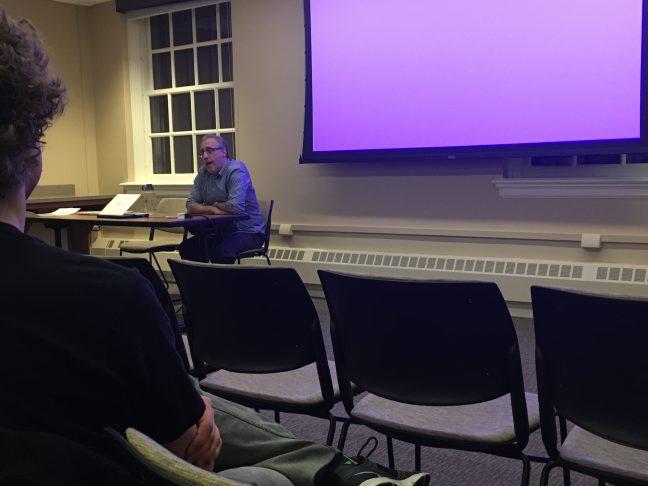In light of the controversial Board of Regents free speech policy, University of Wisconsin political science professor, Howard Schweber, spoke at a forum Thursday to discuss implications of the new policy.
The Associated Students of Madison Legislative Affairs committee hosted the Campus Speech Forum event in association with College Democrats and Wisconsin Union Directorate Society and Politics.
Schweber, who is also an expert on the constitution, said the Board of Regents’ policy on free speech is “dangerous.” While he believes the regents’ intentions were not “wrongly motivated,” he found three major flaws in the policy.
The first issue is vagueness, Schweber said. The policy doesn’t adequately describe the types of protests that are allowed.
Another issue Schweber has with the policy is the mandatory punishment. This is another problem with the policy because law enforcement should have at least some control over the punishment, Schweber said.
“Law enforcement officials absolutely have to have a certain degree of discretion,” Schweber said.
The final issue Schweber sees in the policy is that it was motivated by an assumption that UW administration is acting in favor of students, while students assume administration is acting against them.
The regents don’t trust university administration, Schweber said. They assume UW is routinely ignoring students who participate in disruptive protests.
Schweber also focused on the importance of neutrality when it comes to free speech. The university has an obligation to not discriminate against speakers —that is, speakers from both sides of the political spectrum should be allowed to speak.
“No one has a [constitutional] right to speak at the University of Wisconsin,” Schweber said.
University space is created with the purpose of teaching, so it’s up to UW whether or not to approve a speaker who is presenting in a campus building, Schweber said.
The new policy is an important bipartisan issue and students shouldn’t be trying to make it a partisan problem, Schweber said.
Schweber believes the best way to combat this policy is communication across party lines. He noted UW Law School students have a conservative and a liberal society that often holds joint events.
“Tonight we have a [representative] from College Democrats, why don’t we have one from College Republicans?” Schweber said.
Going forward, Schweber encouraged students to not be afraid to protest what they believe in, but emphasized the Board of Regents policy needs to be a bipartisan issue.
Effective and appropriate protesting is also key, Schweber said.
“In any political issue, people who join together are a coalition of people with different views,” Schweber said.


